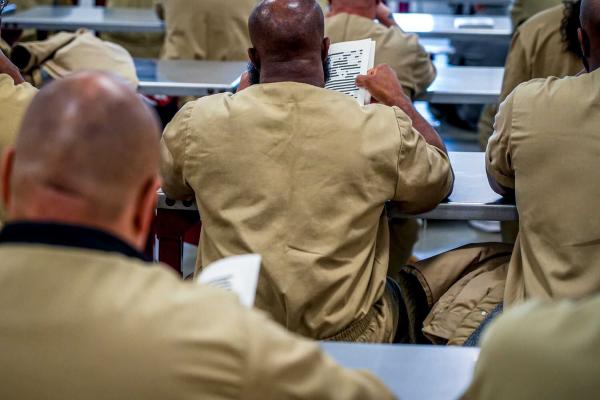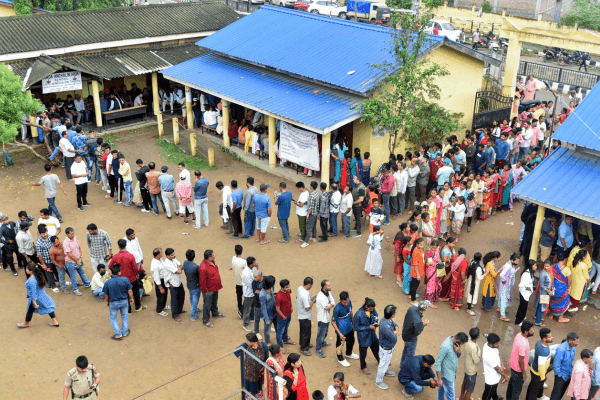“A voice is heard in Ramah, weeping and great mourning, Rachel weeping for her children and refusing to be comforted, because they are no more” (Matthew 2:18, citing Jeremiah 31:15).
In Matthew’s gospel, King Herod fears a threat to his authority after the birth of Jesus, who the Magi call “king of the Jews.” So he acted as Pharoah had done thousands of years earlier, and ordered the slaughter of male children. On the Feast of the Holy Innocents (Dec. 28), many churches read and reflect on the horror of slaughtered infants. I read it in September while preparing a church service acknowledging the legacy of Canadian residential schools.
There is an Anishinaabe story about refusal amid weeping and lament. Each piece of creation relies on the things that were created before it: Plants rely on land and water, animals rely on plants, and humans rely on everything. Seeing how needy and fragile humans were, the deer, along with the rest of creation, promised to take care of us. But humans began to abuse the relationship, so, despite their ancient promise, the deer left. The Anishinaabeg had caused harm through selfish violence and in the middle of their grief, the deer withdrew from us; they refused to be comforted.
There is a lesson there for a church rooted in colonization: Native people can refuse comfort. Refuse to be mission fields or charitable projects. Refuse attempts at relationship. Refuse reconciliation with people who insist on their own innocence because they didn’t directly steal the land or force children into Indian boarding schools or personally perpetuate the injustices that Native people experience.
For American Christians, whose lineage is that of colonization, what does true restoration of relationship look like?
In current Western culture, when we have hurt somebody, we rush to repair. We say that we’re sorry, offering gestures of goodwill or promises of better behavior. Refusal of those attempts feels hurtful. I wonder sometimes if a theology built around salvation through a simple prayer asking for forgiveness of sin hasn’t created false expectations of what defines apology. A person can feel very, very sorry about the harms of settler colonialism — like land loss and church-run Indian boarding schools — but if they haven’t taken the time to reflect and think about their role or silence, the work of repair cannot begin.
The deer did eventually reconcile with the Anishinaabeg. It was the spring after a winter of refusal — during which the Anishinaabeg had time to think and reflect, listening to their traditional stories in the context of absence — when the deer and the Anishinaabeg came together. Then, Anishinaabeg listened to the deer; they came to terms with the inevitable harms their ongoing relationship would cause the deer. They did not absolve themselves by insisting it was only “bad hunters” who had caused harm. Those who lived well took responsibility for those who did not, and they collectively changed how they lived, focusing on relationship rather than building wealth or power. Their grief about inevitable harms resulted in humility.
The church has been part of settlement and colonization for hundreds of years, gathering native people into towns and then reservations and eventually boarding schools for the sake of evangelizing. Missionaries still do this throughout the global south, clearing the land of Indigenous people so that mining companies and agricultural interests can move in, participating at home and abroad in a kingdom building that is both metaphorical and literal.
Herod slaughtered the innocents because he feared a threat to his own kingdom building. Native children and adults have died — are dying — because of Christian kingdom building that refuses to be grieved by the inevitable harms of relationship. And those of us impacted have every right to refuse comfort, to refuse reconciliation, until the church reconciles how the good news became absolution for the harms of building a kingdom instead of relationship.
“This is what the Lord says: Keep your voice from weeping and your eyes from tears, for the reward for your work will come, declares the Lord. Then your children will return from the land of the enemy” (Jeremiah 31:16).
When the earliest settlers arrived, the Native people knew there would be harms. We knew that we would lose some land so the settlers could have somewhere to live. We knew that there would be changes to how we lived, both good and bad, and like the deer, we took the risk of relationship. The responsibility for reconciliation lies with the ones who exploited that relationship. There is a certain liberation in recognizing that injustice is the structural, collective problem of kingdom building. It removes some sense of individual guilt, but it obliges you to interrogate your systems: church communities, workplaces, civic groups — all of which exist on stolen land. It obliges you to look at the groups you belong to and reflect carefully on how shared beliefs and policies impact native communities. The good news is that policies can be changed. Beliefs can be challenged. What was stolen can be restored. And our children, our relatives, can return from the land of the enemy.
Got something to say about what you're reading? We value your feedback!








